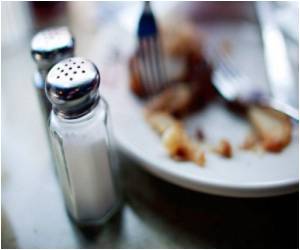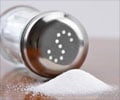If some find it tough to cut salt out of their diet, maybe their genes are to blame, says a new study.

According to the study, low-sodium foods can taste awful - especially for people who have a genetic predisposition to dislike them.
Researchers found that people who are particularly sensitive to bitter flavors tend to eat more salt and have a harder time eating less of it, because salt masks bitterness.
"Not everyone lives in the same taste world. With all of these efforts to reduce sodium, some people are going to have a much harder time with that," Discovery News quoted John Hayes, a biophysiologist at Pennsylvania State University in University Park, as saying.
About 25 percent of people experience flavors more vibrantly than everyone else, thanks to differences in the tiny bumps that house taste buds on our tongues.
The gastronomic world is more extreme to these people, known as supertasters. Fats taste creamier. Sugar tastes sweeter. Chilies taste spicier. Even green, leafy vegetables taste more bitter.
Advertisement
But when Hayes and colleagues asked 87 healthy men and women to keep detailed food diaries for five days, they were surprised to find that supertasters consumed the most sodium throughout the week.
Advertisement
They were also generally more turned off by low-sodium products, like cheese and pretzels.
The study has been reported in the journal Physiology and Behavior.
Source-ANI











